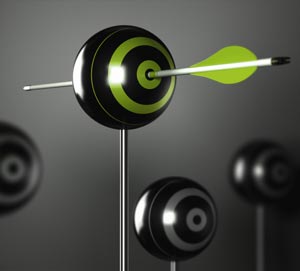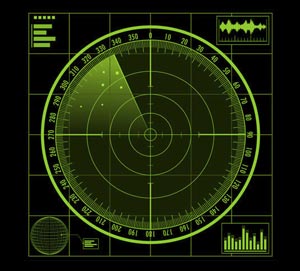Hearing is the primary connection most of us have between the world around us and everything that makes us who we are. The benefits of keeping this connection strong and constant throughout life – are therefore profoundly far-reaching.
It affects everything from our awareness and safety, our memory and concentration, our cardiovascular health, and the opportunities we have access to. It is therefore integral to quality of life and mental wellbeing.
Here's some of what we know so far…
 | Sharpness of mind – hearing is the brain's 24/7 connection to the environment and everything that's happening around us. It provides us with a continuous stream of information and stimulation that triggers thoughts, feelings, memories and associations — both conscious and unconscious. Evidence is mounting that when this connection is compromised it leads to changes in the brain, including shrinkage in key areas and slowing down of cogntive skills. |
 | The ability to lay down new memories – hear something accurately, and we have the chance to lay it down as a new memory so we have the potential to access it again in the future, and combine it with new information in the future. If we don't hear it, or we mishear it, that memory becomes non-existent or distorted. Whenever we have to work harder to understand what we hear, because we're only picking up fragments, it increases the mental effort required which then makes it harder to lay down new memories. |
 | Attention and concentration – hearing provides the brain with the crucial information needed to separate out one sound source from another, which in turn gives us the ability to focus in on one thing whilst ignoring the others. When this information is not distinct or precise enough, everything blends into one – increasing our mental effort and making it more difficult to concentrate. |
 | Mental and physical energy – studies have found that audified hearing plays a role in maintaining mental and physical energy. When hearing is allowed to fade, we have to concentrate harder which is mentally tiring. Also we tend to strain to hear, which causes us to tense our muscles or change our body position, which drains us physically. |
 | Awareness and safety – hearing acts as our early warning system, allowing us to ‘see things behind us’ and rounds corners. It warns us of the approaching car, the creak of the floorboard at night, alerts us to the smoke alarm, and draws attention to the trouble brewing at the back of the classroom. |
 | Interaction with others – we expect to hear each other first time, accurately. As a result conversation just flows, each of us speaking on average 16,000 words a day and hearing far more. So strong is this expectation that conversation will just flow that it is the foundation for much of our personal encounters with other people, both socially and professionally. When this flow is interrupted for any reason we naturally find ourselves frustrated and growing impatient. |
 | The ability to respond in the right way at the right time – nobody likes to appear ‘stupid’ in front of others. If we have misheard or misunderstood our response may be completely out of context, causing at best amusement and at worst offence. If we fail to respond at all it can cause frustration to others or lead them to question our presence of mind. |
 | The ability to take hold of opportunities as and when they happen – the ability to hear accurately and in the moment is crucial to becoming aware of opportunities that may be relevant to us, which in turn gives us the chance to respond accordingly. |
 | Ability for others to depend on us – when our hearing meets the expectations of others, and they are confident that we hear accurately and are likely to respond appropriately, they see us as someone they can rely upon. Mishear, misunderstand or miss entirely what someone has said to us and we risk being sidelined. |
 | Effectiveness at work – many professions and industries involve day-to-day interactions with colleagues, clients, customers and the general public, not to mention any training through continuing professional development. When our hearing is performing as expected, our work relationships go more smoothly, we continue to remain fully involved and engaged in any business development, and we create the right impression for our company or organisation, where having audified hearing is often perceived as synonymous with competence. The better our effectiveness at work, whatever our chosen field, the better our job prospects and income potential. |
 | Confidence and self-esteem – knowing that we're fully engaged and able to be ourselves whatever situation we find ourselves because our hearing isn't going to let us down is essential for confidence and self-esteem. Studies have found that when people cannot rely upon their own hearing they will increasingly withdraw from situations where they are uncertain of their ability to perform. |
 | Independence and self-reliance – when we are uncertain of what's going on around us or that we are unsure we have correctly read a situation, we tend to rely on those who know better than us; we become dependent. Audified hearing keeps us fully aware of what's going on so we have both the opportunity to act independently and the confidence to do so. |
 | Involvement in daily life – audified hearing prevents us from becoming a spectator in our own lives, waiting for others to tell us what's happening and what to do. It empowers us to go where we want to be and choose what we want to do. |
 | Music – music has the power to bring people together, to express things words cannot capture, to transfer emotion from one to another, and to evoke the memories of long-forgotten events as if we were there. Music relaxes, uplifts, heals, motivates, boosts performance and improves memory. Yet at its heart music involves a complex interrelationship of vibrations and timings that almost exclusively depends upon the sense of hearing to fully experience it. |
 | Humour and laughter – the witty comeback, the unexpected punchline, the banter between friends, the play on words, the split-second timing – humour brings with it physical, cognitive, emotional and social benefits, and hearing gives us access to so much this gift has to offer. |
 | The sounds of nature – hearing the birds, the sound of the sea crashing against the rocks or lapping the shore, or the wind rustling the leaves, or chirrup of crickets, or the babbling brook – the sounds of nature reduce stress, lower blood pressure and improve our mental and emotional wellbeing. Hearing gives us access to this wondrous resource, even when we're not actively listening out for it. |
 | Quality of life – when we look at the benefits listed above it comes as no surprise that hearing has a significant bearing on an individual's quality of life. In much the same way that electricity has brought improved quality of life because of all it makes possible, it is what audified hearing makes possible for us that enhances our quality of life in measurable ways that have been irrefutably demonstrated in studies time and time again. |
Introduction | Benefits of Audify for Individuals | Benefits of Audify for Partners, Family and Friends | Benefits of Audify for Society